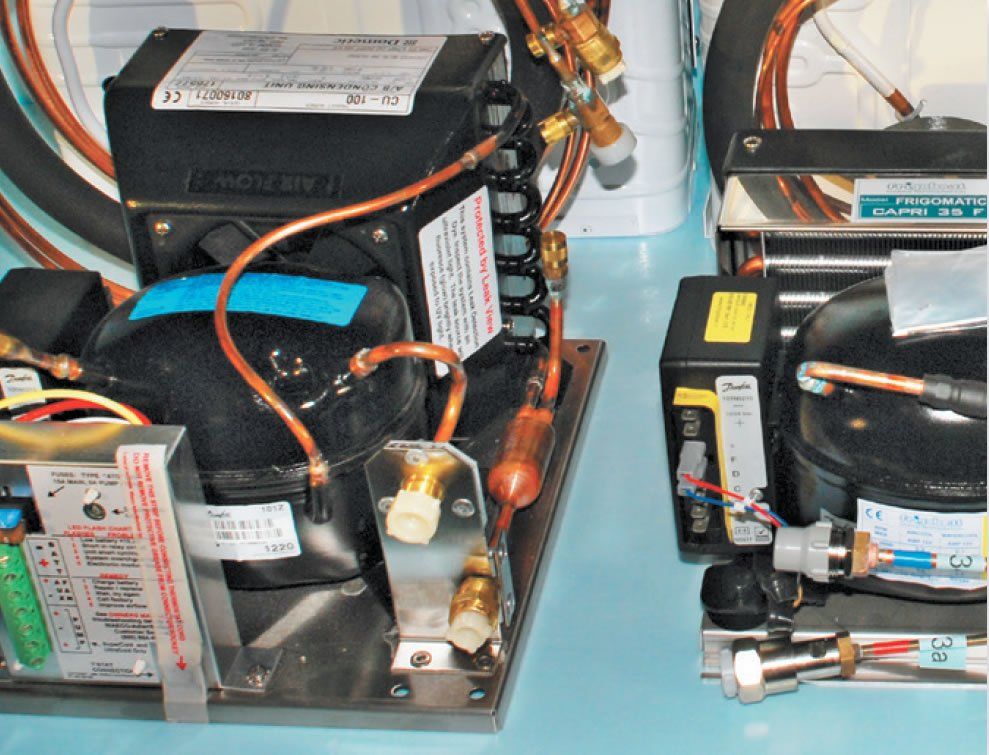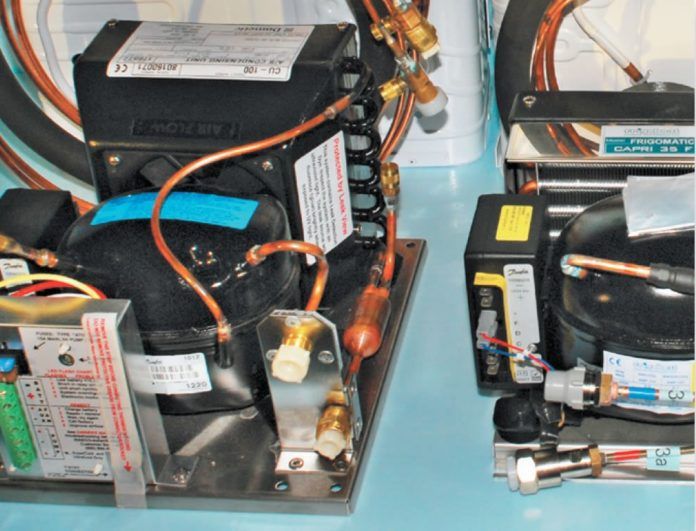Im a marine installer and weve come across another boat with a radio-frequency (RF) issue coming from a Frigoboat refrigeration system. The boat started with two Danfoss compressors and when one was replaced recently, the SSB whines when the new compressor is running. Weve run though the normal RF isolation procedures, but havent had too much luck yet. It seems like RF leakage might be a good topic to explore. What really works to solve it? What installation procedures are necessary?
Name withheld upon request

Whether youre a pro or an amateur, tracking down radio frequency hiss can drive you up a vented loop. Danfoss offers the following guidance for tracking down and eliminating the annoying hiss that its equipment can generate on some radio frequencies:
If the noise source has several components, all of which may contribute interference, separate each potential source to observe its effect.
The battery is an effective trap for the electrical noise reaching the power connections to the noise source. To make effective use of that trap, connect the noise source directly to the battery with the shortest length of wire possible. No other device should be connected to this run of wire. Twisting the power leads will reduce the ability of the power leads to act as an antenna.
The most effective way to reduce emissions from the power leads is to use shielded cable. All accessory and control leads at the noise source should be examined. Reduce lengths to the minimum. Twist and apply grounded shields as needed.
It can be helpful to ground the negative power lead to the frame of the noise source. Look for a screw, which can clamp a short copper strap from the negative power lead to the frame of the noise source.
A filter may be applied close to the noise source. The current rating of this filter should be about twice the maximum current rating of the noise source. If little noise is radiated, a filter at the power connections of the effected equipment may be less costly.
It sounds to us like youve already tried all of these remedies. We turned to two of our contributing editors, marine surveyor Capt. Frank Lanier, and technical editor Ralph Naranjo for any more tips.
Lanier, a former U.S. Coast Guard officer who used to install and trouble shoot electronics, offered this advice:
Noise from refrigerators and other onboard equipment is a very common problem. Based on what Ive learned and from my own and other systems, there is no surefire cure. You can add chokes and filters, but in many cases theres not a whole lot that can be done. The simplest solution is to shut off the fridge when you are using the radio-this is what I do.
Naranjo, who carried out our June 2009 comparison of conversion kits that turn your icebox into a freezer/fridge, offered a similar response:
Frank is spot-on with his comments and the only sure cure is to shut off the reefer when operating the SSB. Much of the problem stems from an SSBs need for a large surface area counterpoise or ground plane that acts as a radial when it comes to RF signal propagation.
This use of the ships ground as a counterpoise links the vessels negative with the ground plane for the antenna and imposes an RF pulse on every wire linked to the boats ground/bond circuit. The Brits originally tried keeping the boats bonded systems separate from the ground, but that didnt completely solve the RF interference issue and it also exacerbated galvanic corrosion issues. The American Boat and Yacht Council standards commingled the grounding/bonding circuit resulting in better safety and corrosion resistance, but also producing more RF radio hiss.











